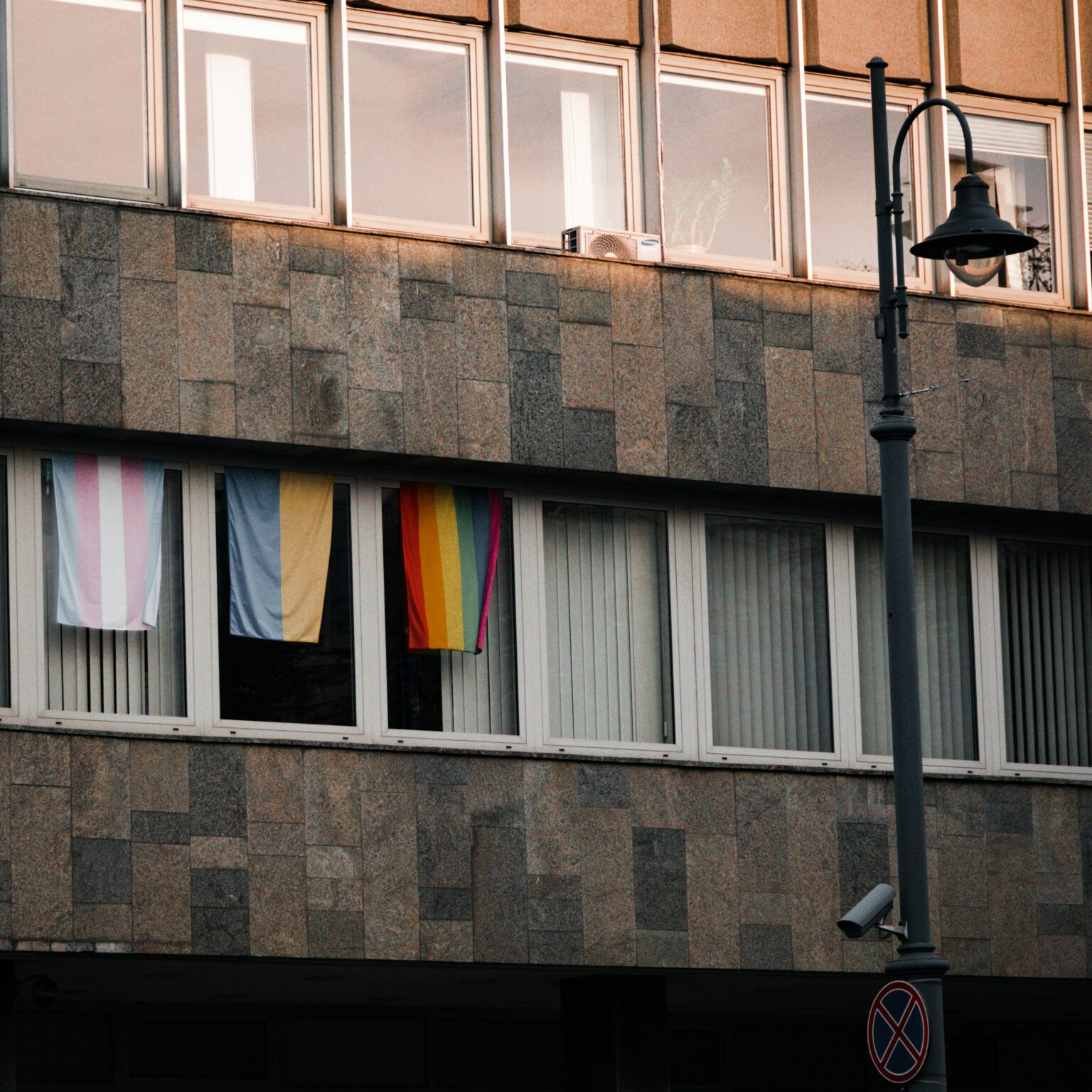Ukraine, LGBTI rights and joining the EU

Last year, Ukraine became a candidate country to join the European Union. But the country’s lack of LGBTI rights threatens to hinder the process
As Ukraine charts its course towards European Union enlargement, it’s vital to focus on improving LGBTI rights in the country. While there’s notable support from society – with 72% of Ukrainians now supporting equal rights for LGBT people – and the international community, hurdles within the Ukrainian Parliament, the Verkhovna Rada, and the Ministry of Internal Affairs threaten to impede progress.
Despite significant strides, resistance persists within the corridors of power. This resistance not only undermines Ukraine’s commitment to EU integration but also poses a threat to the rights and freedoms of LGBTI people.
The leverage of the EU accession process cannot be overstated. The European institutions and EU member states have strength and influence to achieve change. By actively engaging with Ukrainian counterparts and lending their support to legislative initiatives aimed at safeguarding the rights of all individuals, the European Commission and Parliament, but also EU governments play a crucial role in Ukraine’s journey towards EU integration.
Recognition of same-sex partnerships
Recently, members of the European Parliament’s LGBTI Intergroup sent a letter to President Volodymyr Zelensky, showing their support for two important draft laws in Ukraine. These laws, if passed, could make a big difference for LGBTI people in Ukraine and bring the country closer to joining the EU.
One of these laws, Draft Law 9103 is the Legal Recognition of Same-Sex Partnerships. Beyond its legal implications, this would symbolise a monumental shift towards equality and non-discrimination, echoing the values espoused by the EU. If passed, it would provide legal protections and rights to same-sex couples, similar to those enjoyed by heterosexual couples, such as inheritance rights, medical decision-making authority, and financial protections – many of these rights reaching a new significance since the onset of the war in Ukraine.
Protection against hate crimes
Another crucial law mentioned in the letter and awaiting the decision of the Ukrainian Parliament, Draft Law 5488, is the Protection Against Hate Crimes – including those motivated by sexual orientation or gender identity. If enacted, it would provide legal protections to LGBTI people and other vulnerable groups who are targeted for violence or discrimination based on their identity.
In its judgment of 11 April 2024 in Karter v. Ukraine, the European Court of Human Rights ruled that Ukraine violated Article 3 (prohibition of inhuman or degrading treatment) in conjunction with Article 14 (prohibition of discrimination) in view of the ineffective investigation of two verbal and physical attacks of the applicant, a gay man, involving homophobic slurs. Further to the first attack, the authorities did not follow up on the applicants’ hate crime allegations and initially classified it as a robbery. The Court noted that the criminal-law classification the national authorities had chosen for the second attack as falling under the ordinary provisions of criminal law undermined their ability to uncover the alleged homophobic motive behind the attack.
The Court specifically considered the lack of explicit recognition of attacks motivated by sexual orientation as an aggravating circumstance in domestic criminal law in general and under Article 161 of the Criminal Code in particular and the difficulty that the absence of such recognition in domestic criminal law causes in the effective investigation of homophobia-motivated attacks. It considers that domestic authorities should “conduct the investigation taking all reasonable steps with the aim of unmasking the role of possible homophobic motives for the attack” as, otherwise, “prejudice‑motivated crimes would unavoidably be treated on an equal footing with ordinary cases without such overtones, and the resultant indifference would be tantamount to official acquiescence to or even connivance with hate crimes.”
This court ruling serves as another reason for Ukraine to prioritize and enact legislation aimed at addressing the issues highlighted, further emphasizing the urgency of legal reform in safeguarding the rights of LGBTI individuals. As Ukraine moves forward on its path towards European Union enlargement, the support of EU institutions and politicians is crucial in achieving meaningful change and upholding the principles of equality and non-discrimination. By enacting these laws, Ukraine not only strengthens its position on the path towards EU integration but also reinforces its commitment to human rights.